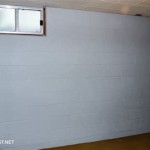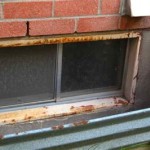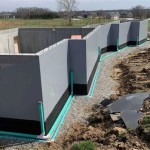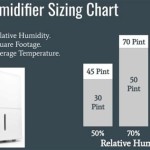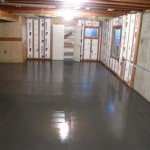Vinyl vs Laminate for Basement: Essential Aspects to Consider
When it comes to flooring options for basements, vinyl and laminate are two popular choices. Both offer durability, moisture resistance, and a wide range of styles. However, there are some key differences between the two that may influence your decision.
Material and Construction
Vinyl flooring is made from polyvinyl chloride (PVC), a synthetic material. It is available in two forms: solid vinyl and vinyl composite tile (VCT). Solid vinyl is a single sheet of material, while VCT consists of multiple layers.
Laminate flooring, on the other hand, is made from high-density fiberboard (HDF) or medium-density fiberboard (MDF). This wood-based material is laminated with a decorative paper layer that provides the flooring's design.
Moisture Resistance
Both vinyl and laminate are moisture resistant, but vinyl has a slight advantage. Solid vinyl flooring is completely waterproof, making it ideal for areas with high moisture levels, such as basements. Laminate flooring is moisture-resistant, but it can swell if exposed to excessive moisture for extended periods.
Durability
Both vinyl and laminate are durable flooring options, but vinyl tends to be more resilient. Solid vinyl flooring is highly resistant to scratches, dents, and wear. Laminate flooring is also durable, but it can be damaged by heavy objects or sharp impacts.
Installation
Vinyl flooring is relatively easy to install. It can be floated, glued down, or installed over existing flooring. Laminate flooring is also easy to install, but it requires a moisture barrier underlayment to prevent moisture from damaging the flooring.
Maintenance
Both vinyl and laminate are easy to maintain. They can be cleaned with a damp mop or cloth. Vinyl flooring does not require waxing or other special treatments, while laminate flooring may require occasional waxing to maintain its shine.
Cost
The cost of vinyl and laminate flooring can vary depending on the quality and style. Generally, vinyl flooring is more expensive than laminate flooring. However, the cost difference may be offset by the longer lifespan of vinyl flooring.
Overall Comparison
When choosing between vinyl and laminate flooring for your basement, consider the following factors:
- Moisture resistance: Vinyl is a better choice for areas with high moisture levels.
- Durability: Vinyl is more durable and scratch-resistant than laminate.
- Installation: Both vinyl and laminate are easy to install, but vinyl is slightly easier.
- Maintenance: Both vinyl and laminate are easy to maintain, but vinyl does not require waxing.
- Cost: Vinyl is more expensive than laminate, but it has a longer lifespan.
Ultimately, the best flooring choice for your basement depends on your individual needs and preferences. If you are looking for a durable, moisture-resistant, and easy-to-maintain flooring option, vinyl is a great choice. If you are on a tighter budget or prefer a more traditional wood-like appearance, laminate flooring may be a better option.

What Is The Best Flooring For Basements Get Pros And Cons

The Best Flooring Options For Your Basement

Lvt Vs Carpet What S Better For A Basement

Lvt Vs Carpet What S Better For A Basement

Laminate Flooring Vs Vinyl Plank Which Is Better

Installing Luxury Vinyl Plank Flooring In Our Basement Week 5 Of The One Room Challenge Willow Bloom Home

Best Flooring For Basement Floor City

New Basement Flooring Shades Of Blue Interiors

Flooring Options For Finished Basements Loudoun

Installing Luxury Vinyl Plank Flooring In Our Basement Week 5 Of The One Room Challenge Willow Bloom Home
Related Posts
